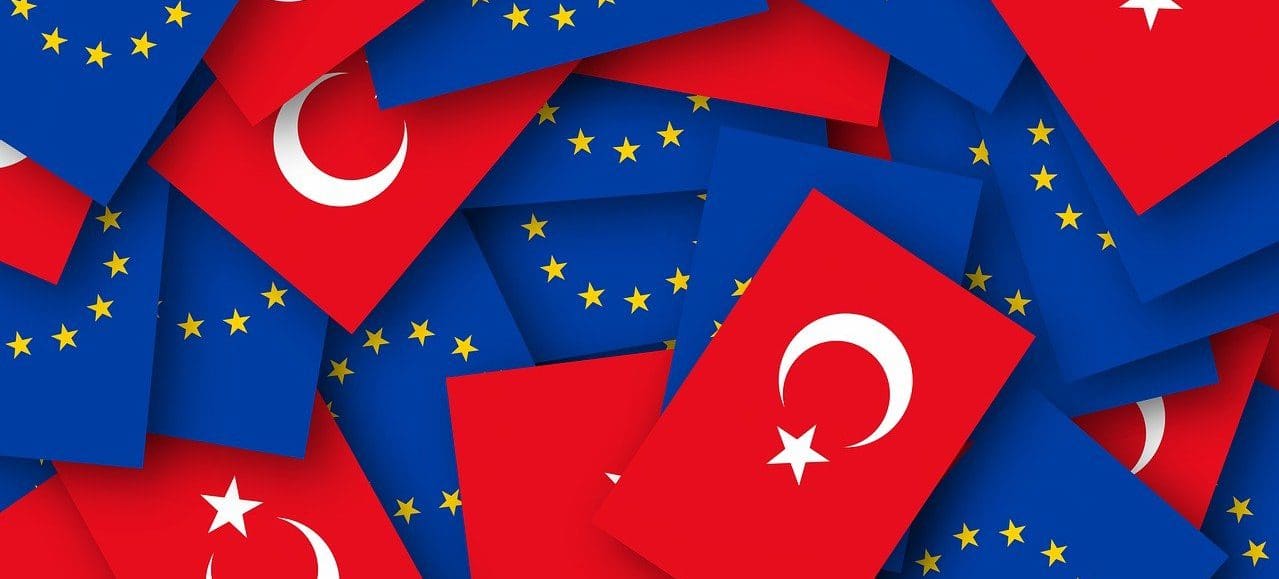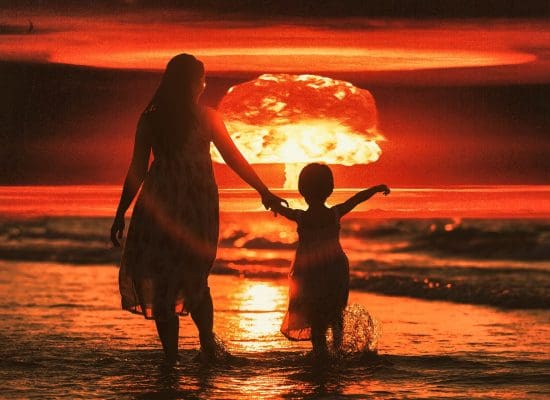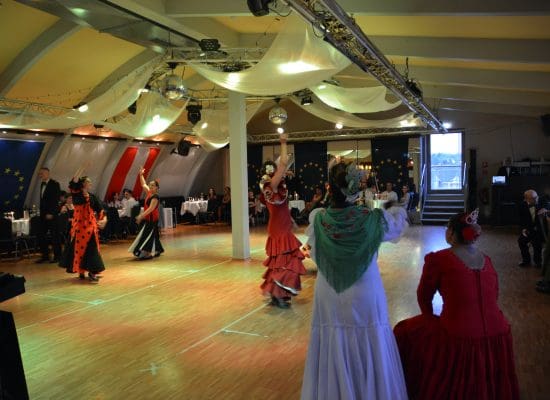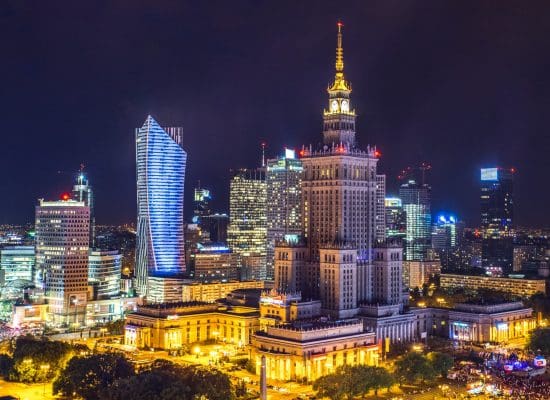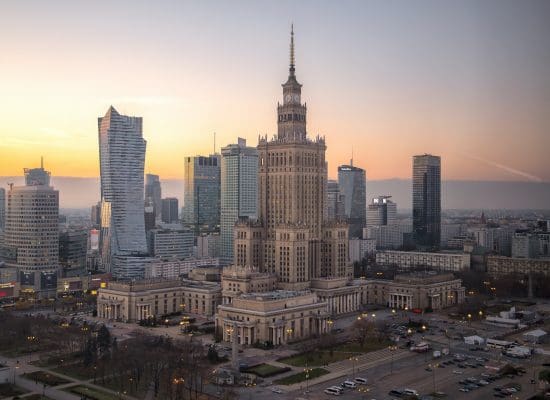Post photo: example image | © Pixabay
After lengthy research, I have completed my reflections on the EU's relations with Turkey. The immediate trigger was the talks started at the highest level in Ankara on April 6.4.2021, XNUMX, which are intended to initiate a process of rapprochement. Beyond the current occasion, I wanted to show the background and connections that prove the difficult ups and downs in relationships. To put it in very general terms, both sides have not always been constructive in the past. However, one thing is clear: It would be pointless to want to discuss EU accession for the “new” Turkey at the moment.
What is feasible in the EU's relationship with Erdogan's "new" Turkey?
When I first heard about the visit of the EU Commission President planned for April 6.4.2021th, XNUMX Ursula von der Leyen and the President of the Council Charles Michel in Turkey, I initially reacted rather cautiously. Does it make sense to the autocrats Recep Tayyip Erdogan courtesy of a visit from the highest representatives of the European Union? Erdogan has often been difficult to assess in foreign policy in recent years. Sometimes it seemed as if he was operating on a trial and error basis. On the other hand, one could also get the impression that he overestimates and overdoes himself in foreign policy. In 2015, for example, he had a Russian fighter jet shot out of the sky, only to buy Russian air defense systems a few years later as a member of NATO. He recently engaged his country in Libya and Azerbaijan. He wasn't really a friend of Donald Trump, but this enabled him to invade Kurdish-controlled territory after US troops withdrew from parts of northern Syria.
Under the heading "Turkish striving for great power: Erdogan ignites the South Caucasus," Deutsche Welle (DW) reported on its website about a military dance on the razor blade that the Turkish president performed after one of the many skirmishes between Armenia and Azerbaijan in the summer of 2020. The Nagorno-Karabakh region, which internationally belongs to Azerbaijan but has been controlled by Armenia since 1994, has long been at issue there. Turkey sees itself as the protecting power of Azerbaijan - last but not least, there are rich gas deposits there. In July 2020, 17 people, mostly soldiers, were officially killed in a clash. In August 2020, Azerbaijan and Turkey held joint military exercises in the region.
Deutsche Welle quotes two contradictory assessments. The political scientist Anna Karapetyan from the think tank "Insight Center for Data Analytics" condemned these military exercises: "Turkey is a destructive factor in the Nagorno-Karabakh conflict." Turkey's military support should be understood as a threat to Armenia and must be punished by the international community. Hacki Casin from Yeditepe University in Istanbul supports the joint military exercise. “It is a very important exercise involving land, air and special forces units. (...) Turkey is trying to secure peace and stability in the region with military might.”
"Ankara and Moscow are on each other's feet again," says the DW report, in which Ankara's strategic mistakes are mentioned, among other things be more different. And the interests of the two regional powers also overlap in the Azerbaijani-Armenian conflict.” The question arises as to whether Erdogan is possibly relying on Turkey's NATO membership when he explores how much freedom Putin is allowing him in Turkey's military activities ?
Recently, Erdogan has come under domestic pressure. The Turkish economy is not running smoothly, the Turkish currency is under pressure on the international financial markets. Erdogan has not only messed with his country's financial and economic experts, but by sacking its central bank governor Murat Cetinkaya lost a lot of trust in his economic and financial policy competence. In the next presidential elections – they will take place in 2023 or even earlier – Erdogan has to worry about being re-elected as President of Turkey. "The deselection of Donald Trump and the Turkish economic crisis are important factors in Erdogan's charm offensive" (towards the EU), writes the Süddeutsche Zeitung (sueddeutsche.de, 6.4.21 April XNUMX: "Fundamental journey to Erdogan"). How could Brussels react to Erdogan's "charm offensive"?
The two options of the EU
Basically, the European Union had and has only two options when dealing with Erdogan's "new" Turkey: It can either continue to keep the unpredictable NATO partner at a distance - the EU could have justified this after all the violations and attacks on democracy , the rule of law, the freedom of the press and freedom of speech in the country, after all the repression of dissenters and government critics who have been accused of all sorts of "offences". In addition, aimed at Macron's actions against Islamists in France, Erdogan's accusation that hostility towards Muslims is supported by heads of state in some European countries, and the statement "they are links in a Nazi chain". There was recently Erdogan's solitary decision to withdraw from the agreement on the protection of women, and finally there were the provocations against NATO partner Greece, which had led to a discussion within the EU about sanctions against Turkey. A whole mountain of reasons to be cautious about Erdogan's Turkey had accumulated. The Turkey correspondent of the Heilbronner Voice captioned her comment on April 6.4.2021th, XNUMX with “Visit should be cancelled” and wrote: “If you (EU Commission President Ursula von der Leyen and Council President Charles Michel) President Recep Tayyip Erdogan in the middle of a new escalation of repression, they show that the rule of law and human rights no longer count for Europe and that the EU only cares about Erdogan's cooperation in the refugee crisis and in the eastern Mediterranean." And not only in the voice of Heilbronn to read such statements.
But the EU and especially the Council had chosen a different option. This was described in the Süddeutsche Zeitung as follows: “At the end of March, the EU heads of state and government promised Turkey closer economic cooperation and the first steps towards modernizing the customs union, after Ankara had largely refrained from provocations so far this year. … It is particularly important to Brussels that Turkey constructively seeks a solution to conflicts with the EU countries Greece and Cyprus” (sueddeutsche.de, April 6.4.2021, 6.4.2021: “Offer to Erdogan”). An offer to Erdogan and Turkey - despite the setbacks in human rights policy and despite Turkey's withdrawal from the Istanbul Convention to protect women from violence, as noted in the SZ report. So the option that could have been rewritten with “You don’t talk to the dirty kids” was rejected by the EU in favor of an attempt to initiate a process of “change through rapprochement”. This can certainly be discussed - whether the attempt will be successful remains to be seen. The “Sofagate” affair showed how difficult and even spicy the negotiations can be, when during the first round of talks on April XNUMX, XNUMX, the President of the Commission was not placed next to the two presidents but rather apart on a sofa. What initially seemed like Erdogan’s “revenge”. Ursula von der Leyen for their comment on Turkey's withdrawal from the Istanbul Convention for the Protection of Women, became piquant for Brussels at the latest when it became known that Charles Michels consultants contributed to the “protocol”.
The Green politician Cem Ozdemir lamented the "Brussels self-dwarfing" and spoke of a "mockery of all democrats in Turkey." Alexander Graf Lambsdorff (FDP) called the termination of the EU accession talks with Turkey, which had been ongoing since 2005, "overdue". Basically, the EU should have seriously considered this demolition earlier. But anyone who now wants to test how serious Erdogan is about approaching the EU cannot begin this test by officially ending the accession talks, which have long since petered out. This termination would provide Erdogan with cheap anti-EU arguments for the next election campaign in Turkey.
In an interview with the Heilbronner Voice, the political analyst and Turkey expert from the German Society for Foreign Relations, Christian Brakel, asked whether the “restart” with Erdogan will succeed. His answer: "Rather not. Erdogan is a very clever politician who changes opportunistic the pages, provided that he secures the power of power "(Heilbronner voice, 10.4.2021:" promise without consequences "). "We extend our hand with this agenda and now it is up to Turkey to seize it," said the President-in-Office of the Council Charles Michel following the first conversation on 6.4.2021. Commission President von der Leyen said the EU would not hesitate to highlight bad developments regarding the human rights situation in Turkey, saying human rights issues were "non-negotiable". The continuation of the discussion process also depends on how Turkey behaves in these areas (quoted from sueddeutsche.de, 6.4.2021 April XNUMX: "Human rights issues are non-negotiable.").
These cautious statements by the EU representatives confirm the quoted statement - "Rather not" - of the Turkey expert Christian Brakel in an interview with the Heilbronner Voice. In view of these uncertainties, the EU should very soon evaluate what the “test” has revealed and whether it is worth deepening negotiations with Turkey on the three pillars of the EU offer: it is not enough to have well-sounding explanations for the Giving up media if there are no consequences at the end.
The three focal points of the forthcoming discussion process should be repeated here. It's about
- The deepening of cooperation in economic issues;
- the development of cooperation in the field of migration; and
- the intensification of contacts between people.
Should the Turkish President only play for time in order to obtain possible arguments and photos for the 2023 election campaign, the heads of state and government of the European Union would have to have the courage to declare their "test" failed. The EU Parliament has an important control function in the critical accompaniment of the discussion process. On April 26.4.2021th, XNUMX, Parliament discussed this with the President of the Council Charles Michel and Commission President von der Leyen on their visit to Ankara. The Green MP Sergey Lagodinsky then gave important hints for the upcoming further Turkey discussion at the next EU summit in June: "I realize that the country cannot become a liberal democracy in two months, but we should demand at least one of three clear signs from Erdogan. Either the withdrawal from the Istanbul Convention will be stopped or the banning proceedings against the opposition party HDP will be stopped. The third demand would be that the judgments of the European Court of Human Rights should finally be implemented, especially those on the imprisonment of intellectuals Osman Kavala and the opposition politician Selahattin Demirtas“ (sueddeutsche.de, 27.4.2021: “The EU must not sacrifice human rights”). The statements show that the parliamentarian takes the control and monitoring function seriously.
Looking back: Relations between the EU and Turkey have always been a difficult up and down
In a paper by the Federal Foreign Office on the status of the EU accession negotiations with Turkey dated December 23.12.2020, XNUMX (heading: "EU enlargement: Turkey"), some data and facts are mentioned in connection with the lengthy accession process:
- In 1963, the then EEC concluded an association agreement (“Ankara Agreement”) with Turkey on close economic ties: Article 28 of the agreement offered Turkey a first perspective of membership.
- In 1987, Turkey officially applied for membership.
- The customs union between the EU and Turkey came into force on January 1.1.1996, XNUMX.
- In 1999 the European Council granted Turkey candidate status.
- In 2004, the European Council determined that Turkey met the so-called 1993 Copenhagen accession criteria.
- Accession negotiations were opened on October 3.10.2005, XNUMX.
This paper by the Federal Foreign Office describes the ups and downs of the accession negotiations. In the country report of October 2020, the EU Commission acknowledges the successes in cooperation with Turkey in the area of migration, but notes serious shortcomings in key areas such as human rights and the judicial system: Turkey is moving further and further away from the EU. Due to Turkey's ongoing provocations and illegal drilling activities in the eastern Mediterranean, the EU established a sanctions framework against persons and entities involved in drilling activities as early as November 2019. The first payments under the sanctions regime took place in February 2020.
What a lengthy and ultimately sad development! One day, historians and Europe experts will have to work through in detail what happened in the 15 years from the beginning of the accession negotiations in 2005 to the low point, the opening of a sanctions process in 2020. In my opinion, both sides, the governments of Turkey and the most important politicians in the EU, have contributed to this downward spiral, to Turkey's course away from Europe. However, in addition to the actions and omissions of politicians, there were events and developments in the Near and Middle East for which neither Turkey nor Europe can be blamed. The Third Gulf War began on March 20.3.2003, 2010; which has destabilized both Iraq and the entire region to this day. Neither Europe nor Turkey are responsible for the "breakout" of the "Arab Spring" in 2011, on whose "battlefields" in Libya and Syria Erdogan is trying to get involved today and where he may overestimate himself and overdo it, because the decisive decisions, what about happening in Syria will not be caught in Ankara. The Syrian conflict that broke out in February XNUMX in the wake of the "Arab Spring" with popular protests against the regime of Bashar al-Assad began and turned into civil war at the end of 2011, has brought foreign powers, militias of all kinds and not least the "holy warriors" of the IS into the country and turned the Near and Middle East into a powder keg. In Syria and parts of Iraq, everyone fought everyone; everyone tried to stake out zones of influence from very different interests. Although the IS was defeated militarily, it will not be possible to bring peace to the region through individual actions or by a single power. At some point, all those involved will have to meet together and - similar to how the European powers in Münster and Osnabrück negotiated the Peace of Westphalia - have to find a solution. Such a peace conference is not in sight. And should it come to that, it will take years – as in Münster and Osnabrück – before a solution is found.
One consequence of the war in Syria was and is the refugee crisis that began for Europe in 2015 and whose (alleged) solution gave the Turkish president a bargaining chip against Europe. It has developed into an instrument of blackmail because the Europeans have not yet found their own solution. This will be discussed again later.
First special topic: Turkey's EU accession - emotions versus factual arguments; how challenges were failed
In the above-mentioned paper from the Federal Foreign Office of December 23.12.2020, 2005, there is the chapter heading: "Accession negotiations: course and challenges". The keyword "challenges" indicates that the EU's accession negotiations with Turkey, which began in XNUMX, were not easy, as it was a large country with a long history, with several attempts at democracy and the failure of these attempts, with military dictatorships, up to on the current attempt at a presidential government tailored to the person of Erdogan, which is gradually becoming more autocratic.
For Turkey, the path to Europe was declared the top priority in 2005, but there was always Ottoman national pride and nationalism, which made it difficult for some Turkish politicians to ultimately hand over state sovereignty to Brussels. A contradictory tension that was and is not only observed in Turkey. Even before accession negotiations opened, Turkey was taking small, sometimes hesitant steps towards Europe. A start was made – often with impatient support from Europe – on making the state structures and the legal system “compatible with Europe”. The abolition of the death penalty was remarkable. A particular problem was the strong position of the military. It was not uncommon for the army headquarters to decide which direction the country should take, not in parliament or the government.
On December 7.12.2008, 54, the Süddeutsche Zeitung reported on a XNUMX-page study by the EU Commission – the then Commissioner for Enlargement was in charge Gunter Verheugen. It was shown, among other things, that if Turkey were to be admitted, the EU would be burdened with up to 28 billion euros a year. In principle, however, EU membership of the large country is manageable for both sides. The study confirmed Turkey's "substantial approximation to European standards." Although there are "continued to be numerous cases of torture and in particular of mistreatment", "this torture is no longer systematic" (sueddeutsche.de 7.12.2008: "Accession of Turkey would cause high costs." On this date (7.12.2008) it should be noted that the SZ of 1.10.2004 is cited as the source of the report). In addition to these optimistic statements by the EU Commission about developments in Turkey leading towards Europe, one fact must be mentioned that repeatedly paralyzed the Union in foreign policy - this fact can still be observed today: the European Union and its members are finding it difficult to speak with one voice on foreign policy. That this was different during the Brexit negotiations with the UK may be the exception that proves the rule. I see the discussions about Turkey's EU accession as a prime example of the opposite. The Wikipedia article on the keyword "Privileged Partnership" explains how there was a dispute about the goal of the accession negotiations, which have been ongoing since 2005. There were conflicting ideas about this.
In March 2004 – ie before the start of the accession negotiations on October 3.10.2005rd, 2005 – the presidencies of the CDU/CSU brought up the keyword of a “privileged partnership” instead of full EU membership. This proposal was also supported by France and Austria and parts of the EPP group in the European Parliament. "In the XNUMX federal election campaign, the Union used the privileged partnership as an election campaign topic to differentiate itself from red-green," writes Wikipedia. The then Prime Minister of Turkey (Recep Tayyip Erdogan) had already rejected this model in February 2004. Austria, in particular, stubbornly insisted on setting goals other than full membership for the talks with Turkey. Austria gave up this demand "only after several hours of negotiations" (Berliner Zeitung, October 4.10.2005th, XNUMX: "EU states agree on negotiations with Turkey").
But the differing statements about the goal of the admission negotiations did not stop after the official start of the negotiations in October 2005. When dealing with all the details of the years-long negotiations, historians and international law experts from Europe and Turkey will have to analyze what has ultimately led to the failure of Turkey's EU accession to date. It is clear what happened or did not happen yesterday can no longer be corrected; time cannot be turned back. But it is helpful to know where possible mistakes were made that could have been avoided.
The long shadows of the terrorist attacks of September 11, 2001 ("9/11") certainly played a role in this. After that there were growing reservations, bad experiences and fears about “Islam” and its terrorist advocates in all European countries. Tingled in Germany Thilo Sarrazin with his 2010 book "Germany creates itself" through the talk shows and newspaper columns and many people in all areas of politics and society discussed "the headscarf" and the vague concept of a German "leading culture". The historians and international law experts will also have to figure out when Turkey's Europe goal was ousted from the top of the foreign policy agenda and replaced by the new goal of becoming the leading regional power in the Middle East. However, Erdogan had to and still has to juggle many, probably too many, balls at the same time, and to stay with the metaphor: sooner or later he will no longer be able to keep all the balls in the air at the same time.
The background of the “new” Turkish foreign policy is described in an analysis worth reading in the Tagesspiegel of October 28.10.20, XNUMX: “Turkey has been pursuing an aggressive foreign policy for some time, which has led to a dispute with Europe over the border in the eastern Mediterranean. The country is at odds with the USA because of the acquisition of a modern Russian air defense system. Tensions are growing with Russia over Turkey's involvement alongside Azerbaijan in the Nagorno-Karabakh war. Erdogan presents the differences to his own public as attempts by alleged enemies abroad to prevent Turkey from becoming a regional power.”
The Tagesspiegel points to a similar pattern in Erdogan's allegations, especially against Europe: "The main target is the French President Emmanuel Macron, who advocates European sanctions against Ankara because of Turkey's actions in the Mediterranean and has declared war on political Islamism in France. Erdogan describes Macron as mentally ill, but also scolds Germany. He took the police search of a Turkish mosque in Berlin last week as an opportunity to accuse the German authorities of racism and Islamophobia.”
"For days now, Erdogan has been painting a picture of a West that is targeting Islam, using ever sharper tones. Hostility towards Muslims is supported by heads of state in some European countries, he claimed on Monday, alluding to Macron, "They are members of a Nazi chain." actually behind Erdogan's Nazi comparisons").
This complicated background makes the talks with Turkey, which began on April 6.4.2021th and are to be welcomed, particularly difficult and their prospects of success so difficult to assess. In general, one can say that both sides have not moved towards each other in recent years, but rather away from each other. Turkey was able to get the impression: "The Europeans don't want us" and in Europe the conviction could grow that "Turkey does not fit in with Europe." At the latest with the coup attempt on July 15.7.2016, XNUMX, the negotiations on EU accession had to become a farce . Erdogan called the attempted coup a "godsend". Turkey's jails filled with opponents of his policies, as well as numerous people he only "suspected" to be opponents of his policies. with Recipe Tayyip Erdogan Wanting to negotiate about adopting the fundamental values of the European Union, about democracy, the rule of law and civil liberties, seems pointless. Also the former EU Enlargement Commissioner Gunter Verheugen, explicitly distinguished in an interview in 2018 between the long-term goal of making Turkey ready to join and the current situation in the country: "It's not about bringing the current Turkey into the EU. We want to have a democratic, constitutional, reliable Turkey as a partner and member." When asked explicitly whether this applies in the long term, but not for today's Turkey, Verheugen emphasized: "Of course. I'm not talking about the country; as it is today.” (Frankfurter Neue Presse, March 27.3.2018, XNUMX: “EU Commissioner Gunter Verheugen: "We need Turkey").
And yet it would not be tactically wise for the EU to officially break off the accession negotiations when attempting to enter into a discussion process with Turkey, which also, but not only, deals with the refugee problem. But it is precisely this point of discussion that reveals a very particular weakness of the EU and its negotiating position: It is high time for the EU to develop a "Plan B" on the subject of asylum, refugees and migration that will make Europe more independent of Turkey's benevolence. This will be discussed below.
Second special topic: The EU needs its own refugee and migration policy
In my opinion, there are certain prospects of success in the talks that have now begun between the EU and Turkey in expanding economic relations - for example in expanding the existing customs union. There are advantages for both sides in this field. The second topic area, the intensification of interpersonal contacts, for example by granting visa-free entry to the EU for Turkish citizens - which has been desired by the Turkish side for a long time - is unlikely to be discussed right at the beginning of the negotiations. For the EU, this keyword falls under the heading of “carrot”, which must be discussed if Turkey shows visible concessions elsewhere.
The third topic of the upcoming discussions, the "cooperation in the migration sector", is likely to become a delicate point of negotiations for the EU. On March 18.3.2021, 18.3.2016, the Heilbronner Voice published a report with the headline: "Rescue attempt for Turkey deal." This deal between the EU and Turkey was signed on March 25.3.1206, XNUMX - exactly five years before this report - after strong efforts by the German Chancellor completed. In fact, the refugee crisis at the time was Turkey's chance to get a foot in the door of Brussels again. "For a long time, the Syrian conflict was far away for the Europeans, over the seven mountains," said one diplomat. “The mass influx of refugees changed that. Suddenly the Europeans realized how much they needed Turkey to stem the flow” (quote from tagesspiegel.de, March XNUMX, XNUMX: “Prime Minister Ahmet Davutoğlu – Architect of Turkish Foreign Policy”).
Put simply, the deal worked as follows: Turkey is holding back the refugees from Syria in the country on the Bosphorus and receiving money from the EU in return. And in fact, immigration from Turkey via Greece to the EU was significantly reduced as a result. The question is, however, whether this deal was actually a success for Europe, as some European politicians think? Again, to put it in a nutshell: With this deal, which was concluded five years ago, the European Union has bought itself time to update the “Dublin Convention”, which has long since become unworkable and which regulates which state is responsible for processing asylum applications is. In the meantime, however, the EU has not succeeded in adopting a forward-looking asylum, refugee and migration system. Should the EU now, in 2021, only aim to revive the deal with Turkey, the fundamental shortcoming will remain: Turkey can still blackmail Europe with the refugees from Syria. Detlef Drewesthe EU Correspondent of the Heilbronner voice, in its reportage of 18.3.2021, refers to the escalation in early 2020, when the Turkish president not only opened the border crossings towards the west for refugees, but also let the refugees with buses to the borders . "The President was angry - allegedly because the EU did not meet its payment commitments" (Heilbronner Voice, March 18.3.2021, 28.10.2020: rescue attempt for the Turkey deal"). This was not an act of diplomacy, this was blackmail. "Erdogan thrives on conflicts," the daily mirror quoted the Turkish political scientist as saying on October XNUMX, XNUMX Cengiz Transfer, who fled Turkey into exile. "Aktar and others are convinced that Erdogan's government needs one foreign policy crisis after another to stay in power" (tagesspiegel.de, October 28.10.2020, XNUMX: "That is actually behind Erdogan's Nazi comparisons"). describes it even more clearly Ernest Hildebrand, the office manager of the Friedrich-Ebert-Foundation in Warsaw, the dilemma of the European Union: "Migration policy has made Europe vulnerable to a strategy of blackmail by transit countries from Turkey to North Africa" (IPG, April 1.4.2021, XNUMX: "Not far from the trunk"). That's why it doesn't take much imagination to hear the almost anxious undertones when European and German politicians praise how many refugees from Syria Turkey has taken in.
When it comes to refugees, asylum and migration, the EU is under pressure from two sides: On the one hand – as described – from Turkey; on the other hand, however, also through our own European canon of values anchored in the EU Treaty (TEU). The television pictures from the refugee camps, such as Moria, the constantly increasing number of deaths in the Mediterranean and the allegations against the EU border protection agency Frontex of having pushed refugee boats away, speak a shameful language. Described the bitter truth about EU refugee policy Heribert Prantl in his column "Prantls Blick" in the Süddeutsche Zeitung: "There could be help, but it shouldn't be because Europe doesn't want it. The camps should remain places of deterrence. The EU calls itself an area of justice, security and freedom, freedom? In the refugee camps, injustice and insecurity are so great that one has to speak of shameful European freedom. There is a lockdown of humanity in refugee policy" (sueddeutsche.de, 27.12.2020/XNUMX/XNUMX:, Heribert Prantl: "Lockdown of humanity in Europe"). Not only the UN and the aid organizations, which experience the misery first hand, accuse; The Pope, too, keeps calling for more solidarity. But all the calls and warnings seem to fade away in the depths of the night. I am always amazed at the cold-hearted rejection by the governments of some EU Member States, who often appeal to their Christian heritage and cultural traditions. But the parable of the good Samaritan seems to have been forgotten there. Or does the commandment to love one's neighbor not apply if the refugees are of Muslim faith? These and similar questions to the EU come not least from countries that Europe accuses of violating human rights. A closer look reveals how politically and morally weak the EU presents itself to the world: it cannot solve the refugee problem in accordance with its own values. The "European solution" that has been invoked for years is still pending. The credibility of the European Union is still at stake.
What to do? Gesine Schwan, the President of the Humboldt-Viadrina Governance Platform and Chairwoman of the SPD Basic Values Commission, recently described the dilemma as follows: “The real alternative in migration policy is between isolation that violates human rights and fair, transparent regulation. Sealing off is inhumane towards migrants and refugees. She never succeeds. But it is also inhuman towards ourselves. Because it drives us into a destructive moral self-contradiction and harms us. History teaches that only open societies capable of learning can respond creatively to the new challenges that will always exist" (Gesine Schwan: "What is the 2021 federal election about?"; in Neue Gesellschaft/Frankfurter Hefte 1/2 -2021, page 61 ff). Gesine Schwan already submitted proposals for refugee policy in 2016, which should be based on voluntary agreements between willing municipalities and the EU (elaboration from 1.10.2016: "A way out of the current European misery in refugee policy - as an opportunity for a new European start").
Perhaps parts of Schwan's considerations were incorporated into the new EU proposals for the reform of European asylum policy, which were presented by the EU Commission on September 23.9.2020, 18.9.2020. I do not want to describe these proposals in detail, because even before they were published, the Süddeutsche Zeitung stated that "an agreement is unlikely" (sueddeutsche.de, XNUMX: "The refugee question is dividing Europe again"). In this report by the Süddeutsche, the Greek Deputy Minister for Migration describes Giorgos Koumoutsakos three groups of EU Member States:
- the Mediterranean countries, which under EU law account for the vast majority of asylum seekers
are responsible and therefore demand solidarity from the other EU states; - the Visegrad countries such as Poland or Hungary, which generally have that kind of solidarity
refuse; and - the rest of traditionally pro-European countries that understand the principle of solidarity and
recognize the value of a common policy.
On December 15.12.2020, 15.12.2020, the Heilbronner Voice reported on the status of the discussion of the new EU proposals: "EU still divided on central points of asylum reform". Accordingly, other proposals by the commission did not bring a breakthrough either (Heilbronner voice, December XNUMX, XNUMX: “Seehofer’s missed goal”). The issue continues to threaten to bog down in the crisscross of interests of the three groups of Member States.
A report by the Council of Europe published on 9.3.2021/9.3.2021/XNUMX describes how miserable the state of European migration policy is. The Süddeutsche Zeitung reported: "The way Europeans deal with refugees and migrants trying to reach the continent via the Mediterranean is "one of the blatant examples of how bad migration policies undermine human rights" (sueddeutsche.de, XNUMX/XNUMX/XNUMX: Serious allegations against Europe's refugee policy").
After all this wrangling about a "European solution" in asylum, refugee and migration policy, the 27 EU member states should actually admit that this "common solution" cannot be achieved because a whole series of states - for what reasons whatever – quite simply do not want any refugees, no immigrants, no strangers. It should now be examined - as a last resort, so to speak, so as not to completely shame the EU in the eyes of the world - whether "enhanced cooperation" according to Article 20 TEU can open up a solution. This would require at least nine Member States. Article 20 TEU provides in general terms: “Enhanced cooperation shall aim at furthering the achievement of the Union's objectives, protecting its interests and strengthening its integration process. It is open to all Member States at any time in accordance with Article 328 of the Treaty on the Functioning of the European Union.”
Such an “enhanced cooperation” project will not fall out of the sky overnight. One or more states would have to take the initiative. Certainly this project will not be popular; the nationalists and xenophobes in the participating countries will offer populist resistance. The general public would have to be convinced that migration and immigration are based on the experiences of the classic immigration countries - e.g. B. USA, Canada, Australia – ultimately means economic and cultural gain. Countries participating in such a project would document that immigrants are welcome; not least an advantage in the global competition for skilled workers. Other countries that today, for short-sighted reasons, believe that they should stir up reservations and fears against immigration or even xenophobia will one day have to realize that life punishes those who come too late.
I first published this post on April 30, 2021 in the forum of the Europastammtisch. Heinrich Kümmerle then asked me to publish this article on his weblog. I am happy to comply with this request.
